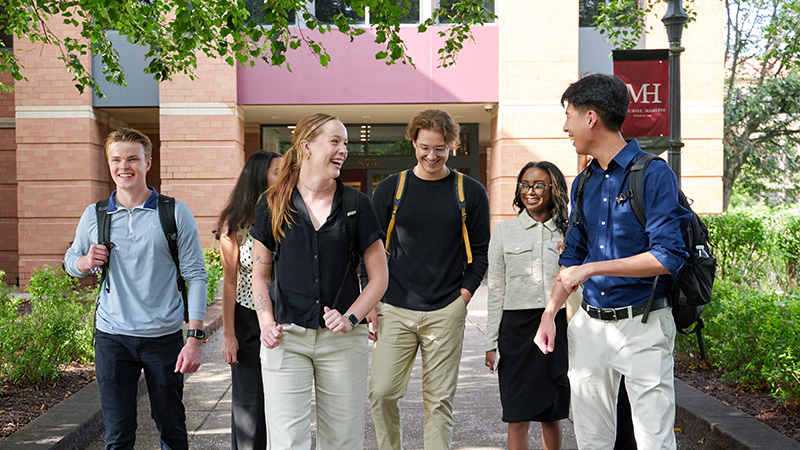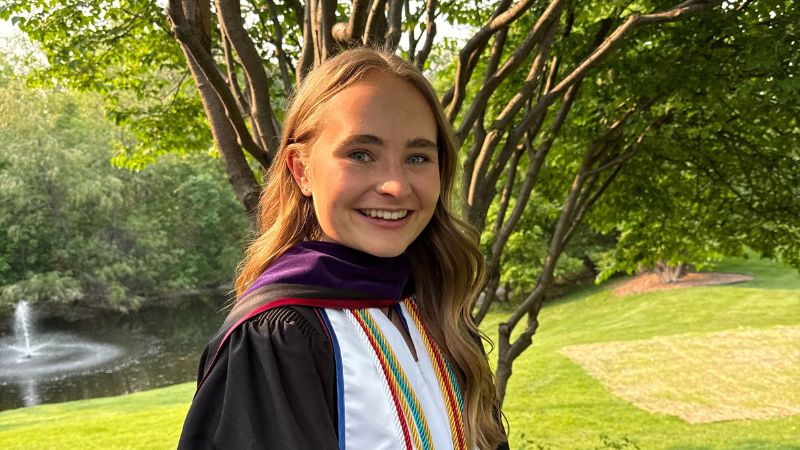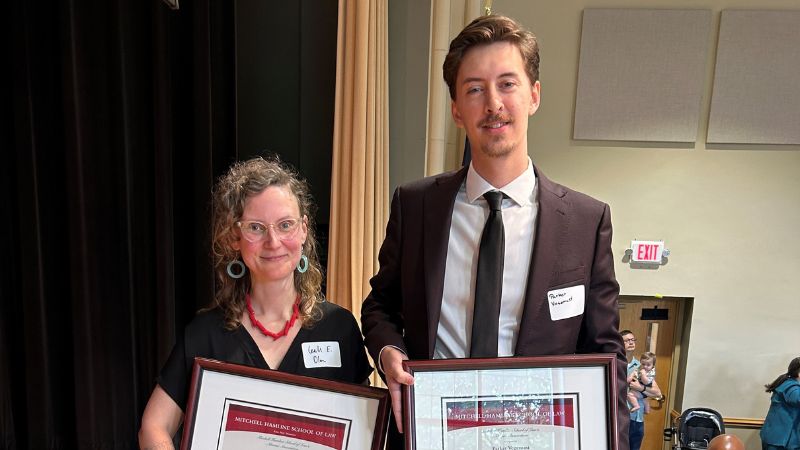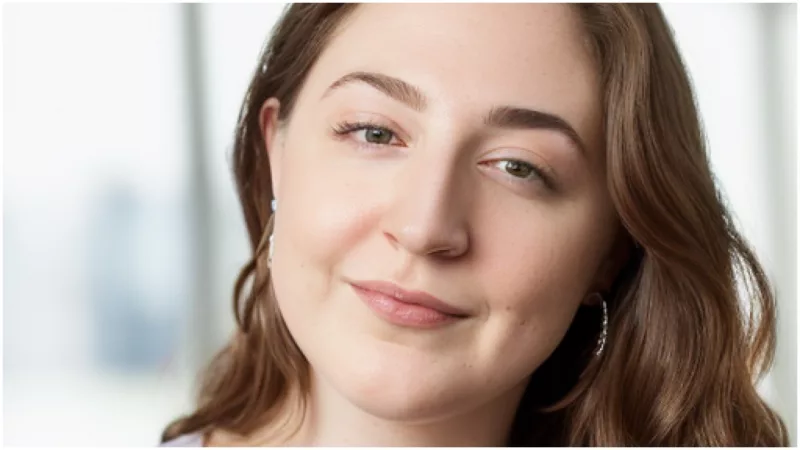New wrongful-conviction clinic designed for blended-learning students
In early June, the Conviction Review Unit (CRU) of the Minnesota Attorney General’s Office announced it was recommending exoneration for Brian Pippitt, a 61-year-old man serving life in prison for first-degree murder.
It was the first time the CRU had ever made an endorsement of full exoneration for a defendant. The work done by a new Mitchell Hamline clinic designed for students in the blended-learning program was considered in the CRU’s recommendation.
Mitchell Hamline’s Wrongful Conviction and Sentencing Clinic, led by Professor Kate Kruse, started during the 2022-23 school year. That year, eight clinic students spent hundreds of hours reviewing Pippitt’s case.
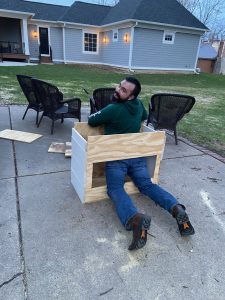
Clinic students Chris Furrer and Lee Sexton built a model of the basement window purportedly used for entry in the commission of the crime. Here, Furrer is attempting to contort himself through the window as one test of the plausibility of the prosecution’s case theory. Photo by Lee Sexton.
The clinic students, working under the supervision of CRU lawyers, conducted an extensive review of the case. They noted flaws in the investigation and prosecution of Pippitt’s case, which cast doubt on Pippitt’s conviction.
In 2001, Pippitt was convicted of the 1998 murder of Evelyn Malin, an 84-year-old shopkeeper in Aitkin County. He has been imprisoned since then. But the CRU’s 181-page investigatory report found both prosecution witnesses tying Pippitt to the crime had fabricated their testimony; indeed, both later recanted. Furthermore, the report concluded the prosecution’s theory of a burglary-gone-wrong was implausible based on evidence at the crime scene. No fingerprints, hair, or DNA of Pippitt or any alleged co-conspirator was ever found at the scene.
The Wrongful Conviction and Sentencing Clinic is a novel opportunity for Mitchell Hamline students. Blended-learning students participate in many of the school’s clinics along with on-campus students, but this was one of the first in the school’s history created specifically with blended-learning students in mind. That meant those working on the Pippitt case lived in states from coast to coast and did most of their work remotely.
“When I started at Mitchell Hamline as a blended-learning student, I didn’t think I would be able to participate in a clinic. When I heard about this opportunity, I felt like it was designed especially for me,” said Rocky Ricarte, a clinic student from the state of Washington. “It was the most fulfilling and motivating experience I had while at Mitchell Hamline.”
“The clinic gave students the opportunity to utilize a diverse set of skills that aren’t always cultivated in traditional law school classrooms,” added Alayna Lerner, a clinic student from Indiana. “The clinic gave us a hands-on, real-life point of reference to take with us as we begin our legal careers.”
In addition to the Pippitt case, clinic students assist the CRU in reviewing other applications for exoneration. The experience has helped shape the career goals of many clinic students.
“The clinic helped solidify my desire to eventually work in the innocence network,” said Zana Molina, a clinic student also from Washington. “I learned through the clinic how to analyze a case from all angles.”
Mitchell Hamline houses one of the first clinical programs to be established at any law school in the country. It offers 17 different clinics, aiding clients on matters ranging from employment discrimination to immigration.
“The Wrongful Conviction and Sentencing Clinic seeks to attain justice for those who are innocent,” said Professor Kruse. “At the same time, it offers student participants hands-on opportunities to investigate the claims of incarcerated people here in Minnesota – even when the students are attending school from far afield.
“I’m proud of the hard work our clinic did in assisting the Conviction Review Unit of the Minnesota Attorney General’s Office in recommending exoneration for Brian Pippitt.”
This article was written by Ben Meyer, a student in the Wrongful Conviction and Sentencing Clinic.

